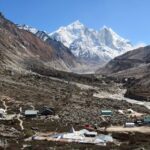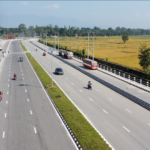Nepal’s dual transition to Lower Middle-Income Country (LMIC) status and Least Developed Country (LDC) graduation is a big moment. Nepal can be proud of the immense progress that the post-war democratic order has presided over. The country has also proved remarkably resilient to devastating crises, such as the 2015 Earthquakes and the COVID-19 pandemic. The UK is proud to have been a long-term partner and friend on this journey.
What we would like to do in this article, is describe how donors think about what LDC graduation means for the funds that countries like the UK give as official development assistance (ODA). Various bilateral donors have different approaches to engaging with LDC countries. Set out below are the anticipated changes to ODA for Nepal informed by international experience.
In terms of the volume of ODA to Nepal, we expect it to remain stable in the short term with priorities and delivery instruments shifting. We don’t see LDC graduation as a cliff edge, where ODA will suddenly stop. Most International Financial Institutions and bilateral agencies make allocation choices determined by criteria other than LDC status. While LDC graduation may have important implications for trade; GNI per capita, and Nepal’s status as a Lower Middle-Income Country may be more influential on ODA decisions. It is expected that as GDP per capita rises, ODA will reduce in absolute terms, and the proportion of the budget that is ODA-sourced will also fall. This is a gradual process and has already started to take place in Nepal, as the Government of Nepal is aware. Nepal’s Statement on LDC Graduation for the 2021 Triennial Review, notes that ODA as a proportion of the government’s budget has decreased from 15.1% in FY 2015/16 to 11.2% in FY 2019/20.
What we do see shifting, is the aid instruments and the objectives of ODA. As Nepal graduates, we will continue to observe a shift away from grants toward loan and equity finance. As a lower middle-income country, with sound and stable macro-economic management, Nepal will be able to borrow from International Financial Institutions in a way that many LDCs cannot. As an increasingly large economy, the proportion of the budget of any one sector that traditional grant-based ODA contributes to will diminish.
Due to this, ODA to Nepal will change with donors no longer willing to pay for the delivery of core government functions. We will see a shift away from direct financial aid where donors transfer funds for core service delivery, towards a focus on the development of Nepali capability, systems strengthening, and technical assistance. We will see a more integrated approach using non-aid instruments like trade, investment, loans, the use of science and technology, and the use of ODA to leverage private sector funds.
In 2026, when Nepal formally graduates from LDC status, the Government of Nepal will be the implementer of development, and the transition focus will therefore be on strong public service delivery. The transition to federal governance structures and having the systems in place to deliver for the people of Nepal will further facilitate graduation. ODA will still be available and important, but it will complement rather than provide grant funding for government delivery. Our objectives as donors will be to help the government innovate and improve its work.
We know that development is rarely simple and linear. Nepal is, and will remain, vulnerable to shocks, and many people in Nepal will remain vulnerable to moving back into poverty. There are three main implications for ODA – First, ODA will have a long tail, donors will remain important partners, they and need to be ready to support countries and people in crises. Second, we need to continue to build the capacity of the Government of Nepal to manage risk and manage crises, building a strong, capable, and inclusive state that can protect its people from climate-related, political, and economic shocks. Finally, building a state that works for the poorest and most vulnerable in Nepal will be a critical part of making LDC graduation successful and sustainable.
This expected trajectory is in line with the UK’s approach. The ‘UK’s offer’ is to continue our long, positive relationship with Nepal, with a more integrated approach that sees traditional bilateral grant aid complemented by support to scale-up trade, investment, and science and technology to support Nepal’s sustainable development.
The article was originally published in Nefport 50: LDC Graduation and Beyond (September 2022). It was co-authored by Heidi Tavakoli, Deputy Development Director; Pipps Bird, Development Director; & Benjamin Zeithlyn, Social Development Advisor, from the British Embassy in Kathmandu.





